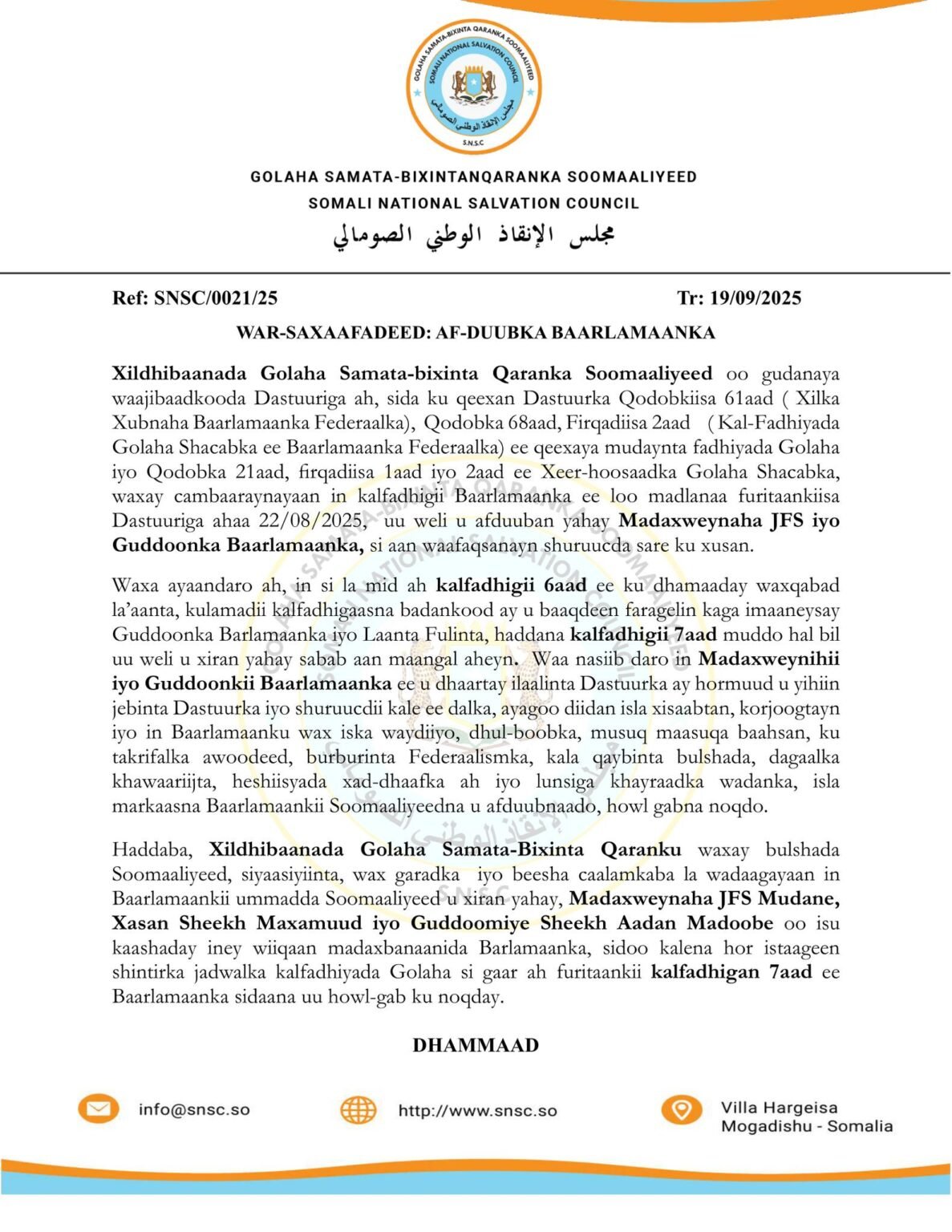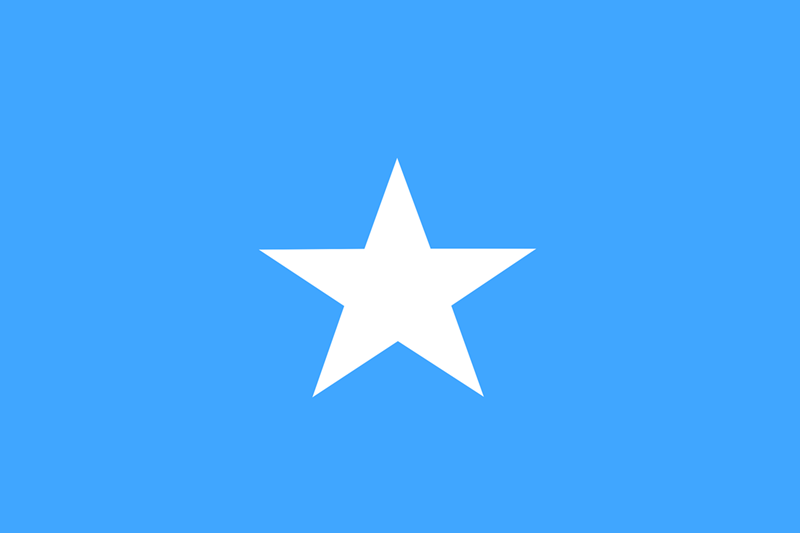Mogadishu, – Opposition lawmakers from Somalia’s National Salvation Council on Saturday accused President Hassan Sheikh Mohamud and Parliamentary Speaker Sheikh Adan Madoobe of “hijacking” the […]
Category: Somalia
Somalia and China Discuss Counterterrorism, Support for AUSSOM
Mogadishu/Beijing, – Somalia and China have agreed to strengthen defense cooperation, with a focus on counterterrorism, regional stability, and support for the African Union Transition […]
National Communications Authority Conducts Consultation on Somalia’s Adoption of the One Network Area (ONA)
Mogadishu, 18 September 2025 — The National Communications Authority (NCA) of Somalia conducted a national consultation on the implementation of the One Network Area (ONA), […]
Puntland Opposition Figure Hassan Shire Launches Anti-Deni Meetings in Garowe
Garowe, – Former Puntland Finance Minister Hassan Shire Abgaal, a vocal critic of President Said Abdullahi Deni, is set to arrive in Garowe on Thursday […]
Arab and Islamic Summit Issues Strong Communiqué on Israeli Attack Against Qatar
Doha, Qatar – Leaders of the Arab League and the Organization of Islamic Cooperation (OIC) convened an emergency summit on September 15, 2025, in Doha, […]
President Al-Sharaa Breaks 60-Year Ban with Planned UN General Assembly Attendance
Damascus, Syria – Syrian President Ahmed al-Sharaa will attend the 80th session of the United Nations General Assembly in New York later this month, marking […]
Somalia’s First Female Boxer Ramla Ali Returns Home with Historic Gold Medal
Mogadishu erupted in celebration today as Ramla Ali, Somalia’s trailblazing boxer, returned home with the country’s first-ever international gold medal won by a female athlete. […]
Traditional Elder Killed in Airstrike in Sanaag
Badhan, Sanaag – A prominent Somali elder, Nabadoon Omar Abdillahi Abdi, was killed on Saturday in an airstrike near El-buh in the Sanaag region, according to local residents. […]
UK Donates Military Vehicles and Equipment to Somali Armed Forces
The Federal Government of Somalia has received a significant delivery of military vehicles and advanced equipment from the United Kingdom, aimed at strengthening the Somali […]
Somali Government Pledges Inclusion of Persons with Disabilities in National Politics
Mogadishu – The Somali government has announced that persons with disabilities will be given a meaningful role in the country’s political process, particularly in the […]

